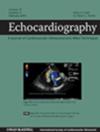Microalbuminuria Is Associated With Left Ventricular Systolic Function in Newly Diagnosed Hypertensive Patients
Abstract
Purpose
Hypertension (HT) is a significant disease and cardiovascular (CV) risk factor worldwide. In patients with HT, cardiac dysfunction constitutes the main problem. Urinary albumin creatinine ratio (UACR), a practical measurement for diagnosing microalbuminuria, is associated with adverse CV events in HT patients. Our study aimed to examine the relationships between UACR and cardiac functions in newly diagnosed HT patients.
Methods
Our study was designed prospectively. Patients diagnosed with HT were started on angiotensin-converting enzyme inhibitors (ACEIs) as treatment and were called for a follow-up after 3 months. Before and after treatment, spot urine samples, 24-h blood pressure monitoring, Conventional transthoracic echocardiography (TTE) parameters, and left ventricular global longitudinal strain (LVGLS) were calculated by Speckle-tracking echocardiography. A linear regression model evaluated the relationship between UACR and cardiac parameters measured on TTE.
Results
Our study consists of 104 patients diagnosed with HT. The mean age of the patients was 49.1 ± 9.5 years, and 44.2% were male. With treatment, mean, night, and day systolic blood pressure (SBP), pulse pressure, and arterial pressure decreased, and these decreases were significantly associated with UACR. Additionally, microalbuminuria decreased with treatment, and an independent and significant association was observed between the decrease in UACR and the improvement in LVGLS in linear regression analysis.
Conclusion
In our study, a significant relationship was observed between microalbuminuria and LVGLS. It was observed that treatments that reduce microalbuminuria and blood pressure control in HT patients were associated with improvement in LV functions, and UACR, which shows microalbuminuria, may be useful in monitoring the improvement in LV systolic functions.

 求助内容:
求助内容: 应助结果提醒方式:
应助结果提醒方式:


